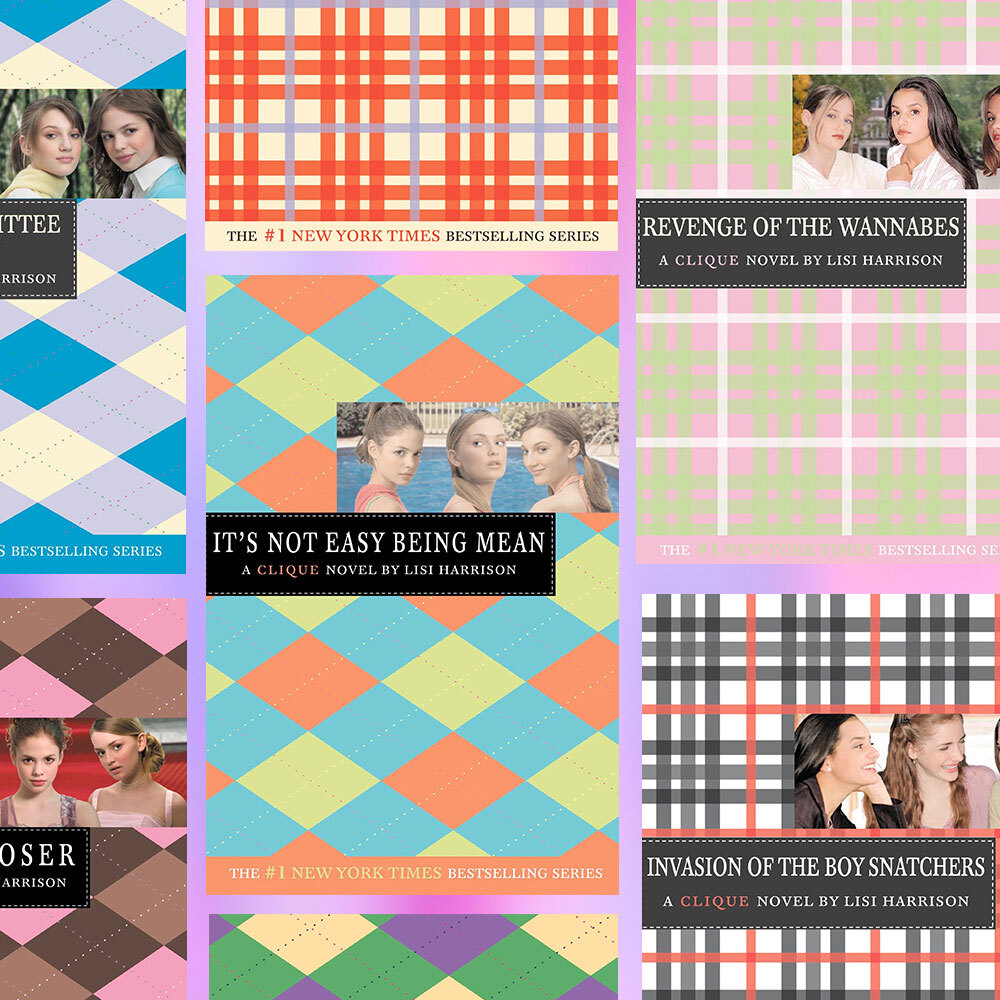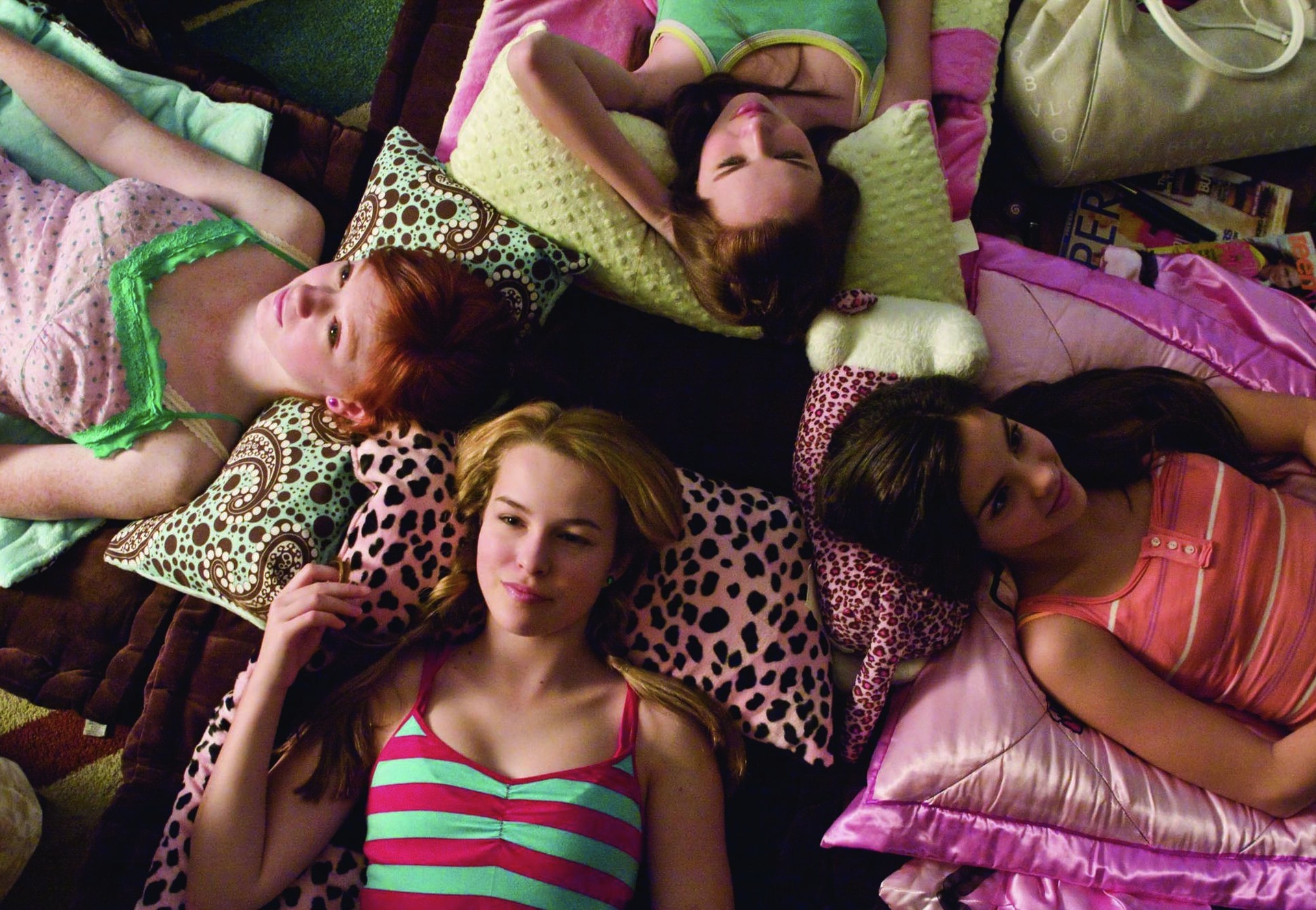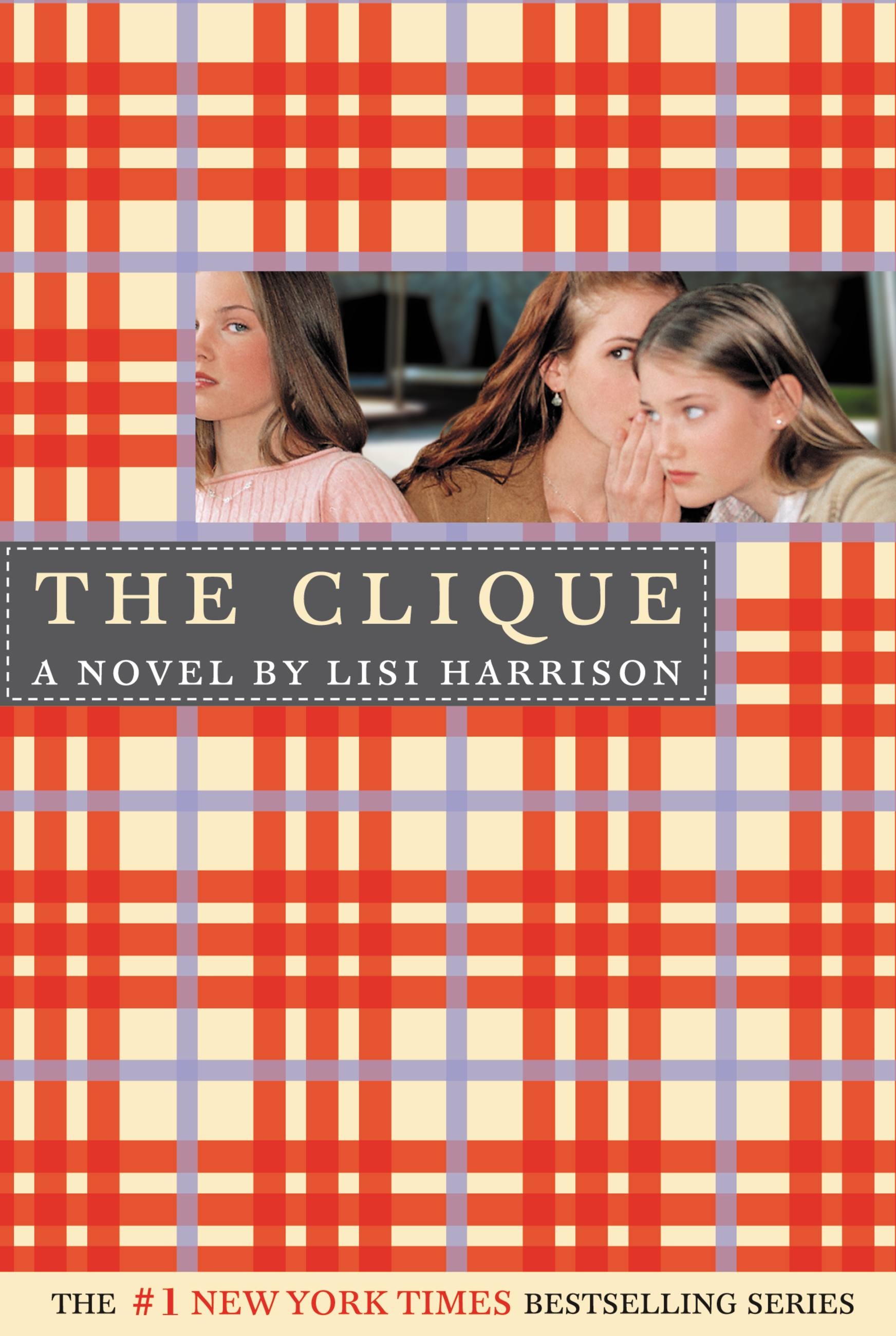
When I first discovered The Clique by Lisi Harrison and its subsequent movie adaptation, I was what the books’ titular clique, The Pretty Committee, would have labeled an LBR: Loser Beyond Repair. But I desperately wanted to be a GLU: Girl Like Us.
A Middle Eastern American pre-teen growing up in a post-9/11 New York, I attended a single-sex private school not unlike the one featured in Harrison’s 15-book series, which first hit bookshelves in 2004. Between my facial and body hair, darker skin, family’s foreign accents, foods, and traditions, I felt like a fish out of water for the entirety of my adolescence. I was caught between two different worlds: not Middle Eastern enough to be considered fully Iranian; not Western enough to be considered fully American. As a result, I began to idolize my homogeneous peers, who I believed were effortlessly beautiful and confident in every way I was not. I wanted nothing more than to fit in. But the harder I tried, the more I stood out.
My desperation led to cruel comments and teasing at school. But instead of being discouraged by my classmates’ behavior, I felt even more determined to prove them wrong. Unable to speak candidly with my parents about my experiences, I sought solace between the pages of Young Adult novels. I was hellbent on studying American teenage behavior and figuring out what made the mean girls tick.
I stumbled upon the first three Clique books at my local Barnes & Noble, immediately drawn to the preppy plaid covers featuring glamorous girls who appeared close in age to me. The models were often pictured whispering into each other’s ears, and I wanted to know all of their secrets. And soon enough, I did. The series followed Massie Block, the leader of a popular tween clique, and her friends, Alicia, Dylan, and Kristen. Massie rules her Westchester middle school with an immense amount of wealth, status, and tiny black pug to boot. But her world spins off its axis when Claire, a middle class Florida transplant, moves into her guesthouse. Claire throws everything that Massie knew about power and loyalty into question and gets ruthlessly hazed as a consequence.

Over the years, The Clique has been unfairly reduced to a de facto “mean girl” manifesto. Past the on-page bullying, the books’ labelmania, rampant materialism, and designer name-dropping were all cited as proof of the series’ toxicity. Parents refused to let their children read the follow-ups. Others took it one step further, arguing that the books should be banned from middle school libraries. I even admittedly drank the Kool-Aid, attempting to emulate The Pretty Committee’s behavior among my own friend group, made up mostly of other minority students. We ranked each other’s outfits on a scale of 1-10, practiced hurling Massie’s signature insults (“Do I sell fertilizer? No? Then why do you think I give a crap?”), and exchanged friendship charm bracelets like baseball cards.
But readers like me didn’t worship Massie because she was rich, but because she was clever. Massie was responsible for coming up with colloquialisms, lingo, and abbreviations—she practically invented her own dialect. In the series, she’s responsible for starting multiple businesses and even publishes her own IN/OUT lists titled “The Current State of the Union.” Harrison’s books did so much more than glorify and romanticize Massie’s bad behavior: They humanized her. The Clique gave outcasts like me an intimate look behind the curtain, at the psyche of said “mean girls.”
Massie Block, the coolest, has to maintain a sense of control at all times because it helps her to combat her deep-seated fear of being alone. Alicia Rivera, the hottest, has been sexualized since she was a little girl and wants nothing more than to be treated as a person, not a body. Dylan Marvil, the meanest, has been starving herself for years in order to get the attention and respect of her absentee celebrity mother. And Kristen Gregory, the smartest, has learned how to strike at people before they can strike first, as a coping mechanism to deflect from the fact that her family has lost everything. By placing us in the heads of The Pretty Committee members, readers were able to better understand their behavior. And learning to empathize with the real people I’d previously dismissed as callous, the girls I’d placed on a pedestal, helped me gain more perspective—and self-confidence. In fact, reading The Clique books taught me how to stand up for myself.

On the surface, the books present the reader with a clear villain, Massie, and hero, Claire, who represents the every girl: an outsider who wears Keds, cuts uneven bangs, and sports sticky fingers from snacking on sour gummies. But look a bit closer, and you’ll discover a false dichotomy. Those lines immediately begin to blur, proposing an idea far more interesting. In the series’ first book, Claire attends The Pretty Committee’s weekly slumber party, much to Massie’s chagrin. At the sleepover, a question is posed: Would you rather be a friendless loser or have a ton of friends who secretly hate you? This query is, in essence, a distillation of the books’ entire premise. Every member of the clique quickly claims they’d prefer to be friendless losers, rather than be forced to “live a lie.” But because the reader is in Massie’s head, we know that she is being dishonest—she’d do anything to avoid loneliness, including accepting false friends. In fact, she fears that’s the reality she’s resigned to.
The only guest willing to answer the question honestly is Claire, who shares that she’d rather have a ton of friends who secretly hate her. For Claire, the former option is her reality, one she refuses to accept. The girls snicker, but Massie is impressed by her candor. She recognizes something in Claire: a similar spark of self-preservation and individualism. The two are not adversaries, but rather, twin flames. They are both LBRs and GLUs. And over the course of the book series, that spark grows into the familiar fire of mutual respect. Claire and Massie may have completely different values, upbringings, and bank accounts, but they share the same fears. And they’re both after the same thing: Authenticity. Connection. Love. More than anything, Massie Block wants to be truly loved.
At 12 years old, this revelation blew my freaking mind.
Learning to empathize with the real people I’d previously dismissed as callous, the girls I’d placed on a pedestal, helped me gain more perspective—and self-confidence. In fact, reading The Clique books taught me how to stand up for myself.
Revisiting the books in my 20s only affirmed their brilliance, while underlining their satirical tendencies. Yes, the series is in no way perfect and has a notable lack of racial and cultural diversity. But the pop culture references stand the test of time; the “cliquetionary” (the vocabulary used by The Pretty Committee) feels just as innovative in 2023; and I still want to get my hands on that genius lip gloss subscription service.
Moreover, I was shocked by Harrison's unmistakeable condemnation of all of the parental figures sprinkled throughout the books, which I completely missed upon my first middle school read.
The adults in the world of The Clique fail their children at every turn, forcing the kids to grow up far too fast. Massie’s parents place too much pressure on her to be perfect, supplying her with credit cards and trainers and nutritionists, but not enough unconditional love. Alicia has family members, teachers, and older boys constantly call attention to her breasts, robbing her of her girlhood through objectification. Dylan’s mother weaponizes her daughter's desire for approval by forcing her to spend her break at “St. Barf’s,” a weight loss facility. And Kristen’s parents' strict academic expectations lead her to live a double life. The only character who is able to hold onto her youthful exuberance is Claire, because her parents play an active role in her life. By emphasizing that the girls’ bad behavior is a learned practice, a direct result of bad parenting, Harrison is leveling an unforgiving social critique of her own parental circles. Ironically, the jury of her peers seemed to be the one group to have entirely missed the point.
As a writer myself, I now attribute so much of my style, voice, and humor to Lisi Harrison. I thanked her in the acknowledgements of my debut novel, A Hundred Other Girls, and even began a newsletter called “Cherry Picked” that features a weekly “Current State of the Union,” as an homage. And I often return to The Clique. Not only because the story is entertaining and the writing is witty, but because Massie Block is such a compelling anti-hero. Her story reminds me that people are more complex than meets the eye and her relationships encourage me to practice patience and lead with empathy. In a world so divisive and quick to categorize, it’s comforting to remember that LBRs and GLUs are, at their core, one and the same. And that’s The Pretty Committee's true legacy.







